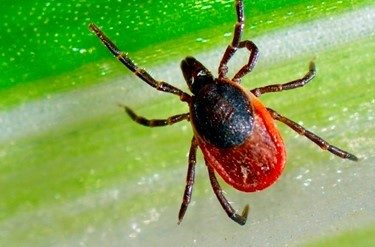With the warmer weather upon us, tick season is here again, bringing with it the threat of Lyme disease.

But with no completely reliable test for Lyme, it’s a disease that can often go undiagnosed, and a new study being conducted at Queen’s University aims to fix that.
“There are still quite a few patients who are kind of left behind, and their symptoms are not well understood and not appreciated. They are often left feeling like people don’t believe them, and so on,” says Dr. Tim Salomons
Salomons says another issue with diagnosis is that not all Lyme disease patients present with the same symptoms. Some get a rash and foggy memory, while others may experience face paralysis and fatigue.
This study aims to find out how doctors can become more effective at diagnosing Lyme disease, despite the wide range of symptoms.

Get breaking National news
“Are there any patterns people haven’t seen yet? Are certain things sticking together? Are certain types of symptoms sticking together? If they are, maybe we could use that to guide some of the biological research we do,” Salomons says.
Lyme disease was only discovered in the 1970s, so it is still a relatively new disease that hasn’t been thoroughly researched. Studies like this one hope to take some of the burden off of patients.
Emilie Norris-Roozmon, who was a Masters candidate at Queen’s University in March 2020, says, “The issue is that, of course, doctors don’t want to just blanket statement, prescribe people antibiotics if there’s no evidence for Lyme.
“So this causes frustration because if left untreated Lyme and other tick borne diseases, they manifest into something that’s chronic.”
“It’s difficult to explain these things,” Salomons says a year later. “They’re difficult problems, but they’re not the patient’s problem. I think that’s the main thing: they’re our mystery to solve.”
Experts say prevention is key when it comes to tick bites. Wearing proper bug repellent works and wearing light-coloured clothing helps you see them better.
The good news is that if a tick bite is caught early, within the first few hours or weeks, a course of antibiotics can pretty much eliminate the disease.
For more information on the elimination of ticks across the nation and to take an experience survey, visit https://mylyme.ca/.
With files from Alexandra Mazur of Global News.









Comments